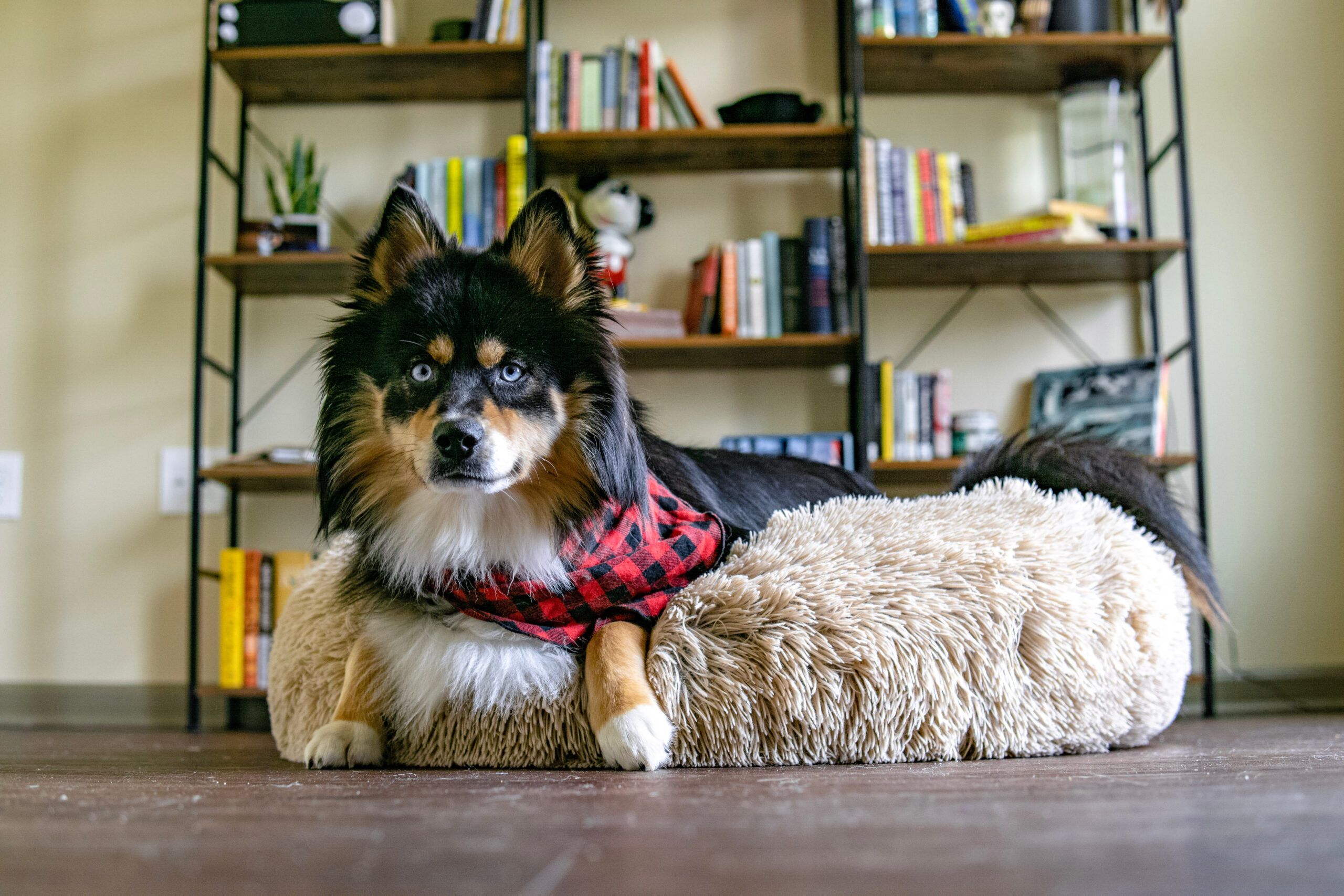 As your Pomsky ages, you may notice changes in their behavior, energy levels, and health needs. Providing the best care for your aging Pomsky involves understanding these changes and adapting to meet their evolving requirements. This comprehensive guide will cover the key areas of supporting your Pomsky’s health and well-being as they grow older.
As your Pomsky ages, you may notice changes in their behavior, energy levels, and health needs. Providing the best care for your aging Pomsky involves understanding these changes and adapting to meet their evolving requirements. This comprehensive guide will cover the key areas of supporting your Pomsky’s health and well-being as they grow older.
Understanding the Aging Process in Pomskies
Aging is a natural process that affects all living beings, including our beloved Pomsky dogs. Pomskies, a hybrid breed resulting from crossing a Pomeranian and a Siberian Husky, typically live between 12 to 15 years. As they age, they undergo various physiological and behavioral changes. These changes can include reduced energy levels, joint stiffness, dental issues, and changes in vision and hearing.
Older Pomskies may also develop age-related health conditions such as arthritis, heart disease, diabetes, and cognitive decline. Recognizing the signs of aging early and consulting with your veterinarian can help manage these conditions effectively.
Nutrition and Diet Adjustments for Senior Pomskies
As your Pomsky enters their senior years, their nutritional needs will change. Senior dogs often require fewer calories due to decreased activity levels, but they still need a diet rich in essential nutrients. Look for high-quality dog food formulated for senior dogs, which typically contains a balanced mix of proteins, fats, and carbohydrates, along with added vitamins and minerals.
It’s important to monitor your Pomsky’s weight and adjust their food intake as needed to prevent obesity, which can exacerbate joint problems and other health issues. Providing a diet with joint-supporting supplements such as glucosamine and chondroitin can help manage arthritis and improve mobility. Additionally, ensuring they have access to fresh water at all times is crucial for their overall health.
In some cases, mobility solutions like the dog wheelchairs at K9 Carts can be beneficial for Pomskies with severe joint issues or mobility problems. These devices can enhance their quality of life by allowing them to move around comfortably and maintain some level of physical activity.
Exercise and Mental Stimulation for Aging Pomskies
Maintaining an active lifestyle is vital for senior Pomskies, although their exercise routines will need to be modified to suit their age and physical condition. Regular, gentle exercise helps keep their muscles strong, joints flexible, and prevents obesity. Shorter, more frequent walks are often better than long, strenuous ones. Swimming is an excellent low-impact exercise that can be particularly beneficial for dogs with joint issues.
Mental stimulation is equally important to keep your Pomsky’s mind sharp. Engage them in interactive games, puzzle toys, and training sessions that challenge their cognitive abilities. Regular playtime and social interaction can also help prevent boredom and anxiety, which are common in older dogs.
Regular Veterinary Check-Ups and Health Monitoring
Frequent veterinary check-ups are essential for senior Pomskies to detect and manage health issues early. Your vet can perform comprehensive exams, including blood tests, urine analysis, and dental checks, to monitor your dog’s overall health. These visits are also an opportunity to discuss any changes in behavior or health concerns you may have noticed.
Dental health is often overlooked but is crucial for senior dogs. Regular teeth cleaning, either at home or by a professional, can prevent dental diseases that can lead to more serious health issues. Additionally, keeping an eye on your Pomsky’s weight, coat condition, and mobility can provide early indicators of health problems.
Comfort and Living Environment Adaptations
Creating a comfortable living environment for your aging Pomsky can significantly enhance their quality of life. Soft, supportive bedding can help alleviate joint pain and provide a cozy resting place. Ensure their bed is placed in a quiet, easily accessible area of your home.
Consider making adjustments to your home to accommodate their needs. Ramps or stairs can help them access furniture or beds without straining their joints. Non-slip mats can prevent accidents on slippery floors. Keeping their food and water bowls at a comfortable height can make eating and drinking easier for them.
Managing Chronic Conditions and Medications
Many senior Pomskies develop chronic health conditions that require ongoing management and medication. Conditions such as arthritis, diabetes, and heart disease can be effectively managed with the right treatment plan. Your veterinarian can prescribe medications to control pain, manage symptoms, and improve your dog’s quality of life.
It’s important to administer medications as directed and monitor your Pomsky for any side effects. Regularly reviewing their treatment plan with your vet ensures that it remains effective and adjustments can be made as needed. In some cases, alternative therapies such as acupuncture, physical therapy, and massage can provide additional relief for chronic conditions.
Emotional Well-Being and Companionship
An often-overlooked aspect of caring for an aging Pomsky is their emotional well-being. Older dogs can experience changes in their behavior and mood, sometimes becoming more anxious or withdrawn. Providing consistent companionship, affection, and positive reinforcement can help them feel secure and loved.
Spend quality time with your Pomsky through gentle play, grooming, and relaxation. Maintaining a routine can also provide a sense of stability and reduce anxiety. If your dog shows signs of cognitive decline, such as disorientation or changes in sleep patterns, consult your veterinarian for strategies to manage these symptoms.
End-of-Life Care and Decisions
As difficult as it is to think about, there may come a time when you need to make end-of-life decisions for your beloved Pomsky. Understanding the signs of a declining quality of life, such as chronic pain, loss of appetite, and inability to move or enjoy activities, can help you make informed decisions.
Discussing your options with your veterinarian, including palliative care and euthanasia, can provide clarity and support during this challenging time. Ensuring your Pomsky’s final days are comfortable and filled with love is the greatest gift you can offer them.
Supporting your aging Pomsky’s health and well-being requires dedication, patience, and a deep understanding of their changing needs. By focusing on proper nutrition, regular exercise, veterinary care, and emotional support, you can help your Pomsky live a happy and healthy life well into their senior years.

